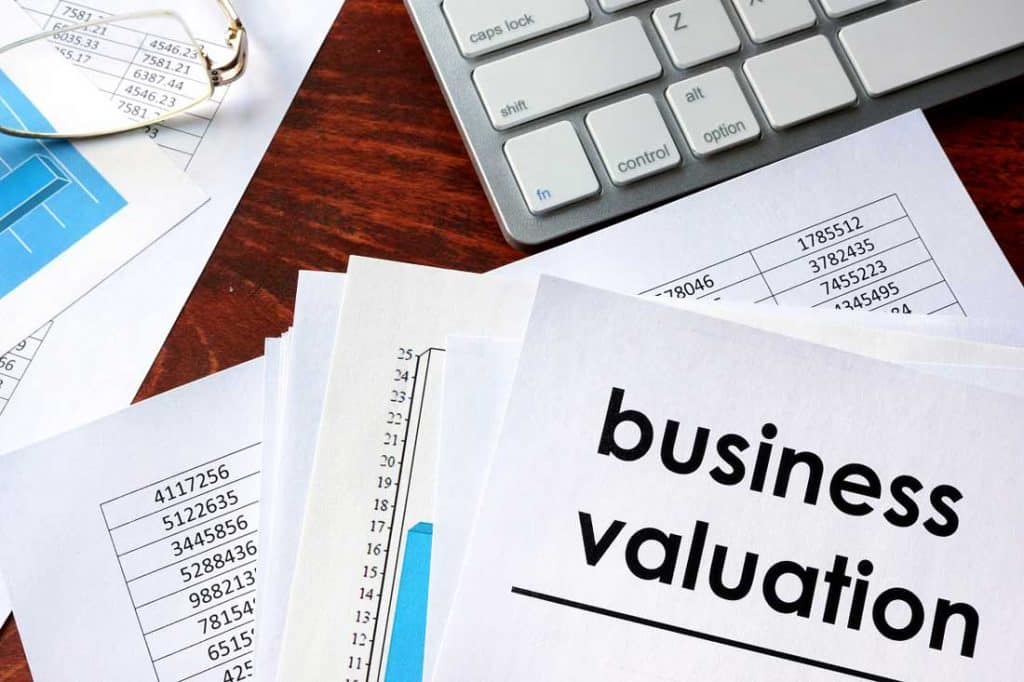What is the value of my business? This is the first and foremost question on the mind of business buyers and sellers. Business owners that are either considering selling their business or preparing to sell their business need to know what a realistic market value is for their business. Buyers face the same question when they are searching for and considering businesses for sale; what is this business actually worth? Below we explain what a formal Business Valuation is, Market Value Reports, and how to obtain a good estimate of the market value of a business on your own.
Business market values are not as simple as residential real estate where you can go to Zillow or other websites and quickly see what similar homes in the area are selling for. First there are many different types of businesses-industries, and each is valued very differently. Secondly, business values are driven by earnings, so even businesses in the same industry will have very different values depending on their earnings.
Businesses are actually valued by very specific methodologies and there are a number of industry certifications for analysts trained and certified in Business Valuation. The most common professional designations for valuation analysts are CVA (Certified Valuation Analyst), ASA (Accredited Senior Appraiser), CBA (Certified Business Appraiser), and ABV (Accredited in Business Valuation). Many professional Business Brokers have had formal training in business valuation from organizations like CABB (California Association of Business Brokers) or the IBBA (International Business Broker Association) which offer a number of classes in recasting financial statements and business valuation.
A formal third party Business Valuation typically ranges from $2,500 to over $5,000 or even $10,000 depending on the purpose of the valuation. For example valuations for divorces or related to litigation are much more extensive and hence more expensive. Basic third party valuations for smaller businesses can be obtained for around $2,500. Most professional Business Brokers, including our firm, offer free Market Value Reports for prospective clients.
So what’s the difference between a “Market Value Report” and a formal third party valuation? Many Market Value Reports are very basic and do not include an in depth review of the businesses financial statements. At Pacific Business Sales our Market Value Report is comprehensive. We recast the last 3 years financial statements following CABB and IBBA guidelines, use Peercomps business valuation software to obtain relevant comparable sales data, and use the Peercomps valuation software to calculate an accurate Market Value based the Market Data Approach (comps) and the Income Approach (discounted future cash flow model). This results in an accurate data driven business value.
A Simple Method to Determine the Value of a Business on Your Own
The simplest way to value a business is the Comparable Sales Method, also known as “comps”. Comparable Sales databases provide average sales values based on the industry type with average multiples of Discretionary Earnings, revenue, and in some databases EBITDA (Earnings Before Interest Depreciation Taxes & Amortization). Chapter 11 of my book, “Own Your Future” explains how to value to a business with examples of using comps to estimate business values.
The concept for using comps is simple, select a similar industry, then select companies with similar revenue and earnings and use the earnings multiples to determine the value of your company. The obvious question is where do I get comps?
Business Brokers and analysts have access to professional databases that are not available to the public. However, you can access a database of both for sale and sold Comps and run a basic valuation through BizBuySell.com for $19.95 to $59.95. While this is not a formal business valuation, it is a good tool for estimating the market value of a business and it is very simple to use. The BizBuySell.com business valuation tool is easy to use and also easy to obtain erroneous results as the database is not as accurate as others because while the data is from closed transactions it is broker provided figures.
Peercomps offers a more comprehensive valuation tool which is used by business brokers and valuation analysts. The Peercomps database is from actual closed SBA financed transactions and the valuation data is from the actual independent business valuation prepared by a Certified Valuation Analyst. You can obtain a free comps report for your industry and a complete do it yourself valuation report for $99. This is a great deal for a valuation, but it is fairly complicated.
Steps to Calculate the Market Value of a Business
To get an accurate market value you must use the correct value for the company’s Discretionary Earnings and revenue. While revenue figures are easy to obtain, calculating the correct Discretionary Earnings is more complicated (see What is DE for more information). Simply put, Discretionary Earnings are the total economic benefit of owning the business. This includes the owner’s salary, health and life insurance, and other owner’s benefits such as travel & entertainment, auto expenses, and other personal expenses.
To calculate the DE start with the net profit on the tax returns and then add back the owner’s salary and benefits. It is important to ensure that all expenses are shown on the tax return (some may be shown on expense statements on the tax return or buried in general category). Expenses that are not tied to a line item on the tax return should not be added back.
- Tax Returns: You’ll need to have the last 3 years or Federal Tax Returns to calculate the DE for Peercomps. For a rough estimate you can use an estimated DE but remember, a small error on the DE will result in a big error on the estimated market value since this is multiplied by the DE Multiple.
- Calculate the DE (Discretionary Earnings).
- Comps: look up comparable sales for businesses in the same industry with similar revenue and earnings. It is very important that the industry, revenue and earnings are all similar to get reliable comparable sales figures and multiples. When selecting the comparable sales to use, remove any that have much higher or lower earnings than the company you are considering and use comps from businesses that are as close as possible to the company you are evaluating. Preferably you should have at least 5 or more comps.
- Apply DE and EBITDA Multiples: Use the DE and EBITDA multiples from your comps to multiply against the DE and EBITDA for the company you are considering.
For a Free Market Valuation or information about selling your business Contact Us.





